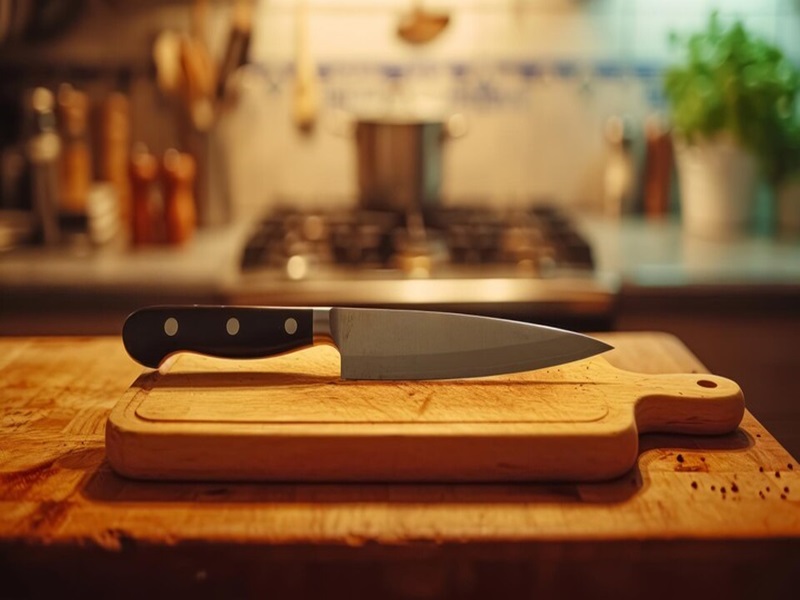Navigating the complexities of Knives in Canada can be a daunting task for anyone who owns or is interested in owning knives. Whether you’re a chef, an outdoor enthusiast, or a collector, understanding the legal landscape is crucial to ensure compliance and avoid potential legal issues. This article will provide an in-depth look into the knives legal in canada, helping you stay informed and within the bounds of the law.
Canadian Knife Laws Overview
Canada has a set of laws that govern the ownership, carrying, and use of knives. These laws are primarily enforced at the federal level, but some provinces may have additional regulations. The key to understanding these laws is knowing the difference between prohibited, restricted, and legal knives, as well as the circumstances under which you can legally carry them.
Types of Knives Regulated in Canada
Prohibited Knives
Certain types of knives are outright banned in Canada. These include:
- Butterfly Knives: Known for their unique design, these knives are illegal to possess or carry.
- Switchblades: These automatic knives can be opened with the press of a button and are prohibited in Canada.
Restricted Knives
Other knives may be restricted, meaning they are legal under certain conditions but illegal in others:
- Concealed Knives: Any knife carried in a manner that conceals it from view may be considered illegal.
- Knives with Specific Blade Lengths: Some provinces regulate the length of knife blades that can be carried in public.
Legal Knives for Everyday Use
Despite the restrictions, many knives are perfectly legal to own and use in Canada.
Kitchen Knives
Standard kitchen knives are legal and widely used in households and restaurants. However, using them in a threatening manner or carrying them outside of their intended environment could result in legal trouble.
Pocket Knives
Pocket knives are generally legal as long as they are not spring-loaded or concealed. These are popular among outdoorsmen and hobbyists for their practicality and portability.
Hunting Knives
Hunting knives are legal to own and use, provided they are used for their intended purpose and are not carried in a concealed manner.
Understanding Knife Carrying Laws
Public vs. Private Carrying
Carrying a knife in public is subject to strict regulations. While it’s legal to own certain knives, carrying them in public without a valid reason can lead to criminal charges.
Concealed Carry Restrictions
Carrying a knife in a concealed manner, even if it’s legal to own, is often illegal. Concealed knives can be perceived as a threat, leading to potential legal repercussions.
Transporting Knives Safely
When transporting knives, especially those that are large or sharp, it’s important to store them safely. This typically involves keeping them in a secure case and out of immediate reach.
Self-Defense and Knives in Canada
Using a knife for self-defense is a complex legal issue in Canada. While self-defense is a recognized legal right, using a knife can escalate a situation, leading to severe legal consequences. Canadian law generally advises against carrying knives for self-defense, and in many cases, the use of a knife in self-defense can result in criminal charges.
Knife Collecting in Canada
For those interested in collecting knives, it’s essential to understand the legalities surrounding knife ownership. Collectors must ensure that their knives are not prohibited by law and that they comply with any provincial regulations.
Import and Export Regulations
Importing and exporting knives, especially prohibited or restricted types, is subject to strict regulation. Collectors should be aware of these laws to avoid confiscation or legal issues at the border.
Buying and Selling Knives in Canada
Legal Requirements for Retailers
Retailers selling knives must comply with federal and provincial laws, ensuring that they do not sell prohibited items. Retailers are also responsible for verifying the age of buyers to comply with legal age restrictions.
Online vs. In-Store Purchases
Buying knives online can be more convenient, but it also comes with additional legal considerations. It’s important to ensure that the seller is reputable and that the knives being purchased are legal in your province.
Age Restrictions
In Canada, there are age restrictions on purchasing certain types of knives. Retailers are required to verify that buyers meet these age requirements before completing a sale.
Knives in the Workplace
Regulations for Chefs and Butchers
Professionals such as chefs and butchers use knives as essential tools in their work. However, they must ensure that their use of knives complies with workplace safety regulations and that they are not used inappropriately outside of work.
Knives in the Construction and Outdoor Industries
In construction and outdoor industries, knives are often used as tools. Workers must follow safety protocols and ensure that their knives comply with industry regulations.
Impact of Recent Legal Changes on Knife Ownership
In recent years, there have been changes to Canadian knife laws that have impacted knife ownership and usage. These changes often reflect evolving attitudes towards weapons and public safety. It’s crucial for knife owners to stay informed about these changes to remain compliant with the law.
Knife Laws in Border Crossings
Traveling with Knives
When traveling with knives, it’s important to be aware of both Canadian laws and the laws of the destination country. Knives that are legal in Canada may be illegal elsewhere, leading to potential legal issues at the border.
Importing and Exporting Knives
Importing and exporting knives require adherence to strict regulations. This includes declaring the knives at customs and ensuring that they are not on the prohibited list.
Penalties for Violating Knife Laws
Violating knife laws in Canada can result in significant penalties, including fines and criminal charges. To avoid these penalties, it’s essential to understand the laws and ensure compliance at all times.
How to Stay Informed About Knife Laws
Knife laws can change, and staying informed is crucial for anyone who owns or uses knives. Resources such as legal websites, knife enthusiast communities, and legal consultation services can provide valuable information on the latest laws and regulations.
Conclusion
Understanding the legalities of knives in Canada is essential for anyone who owns, uses, or is interested in knives. By staying informed and adhering to the laws, you can enjoy your knives responsibly and avoid legal issues. Whether you are a collector, a professional, or simply someone who appreciates a good knife, knowledge of the legal landscape is key to responsible ownership.


